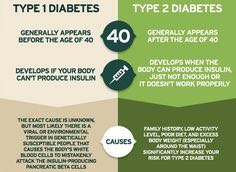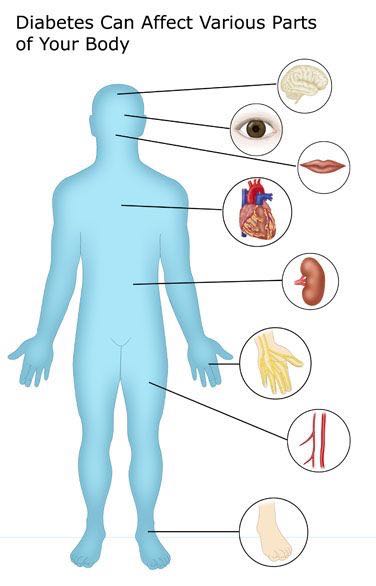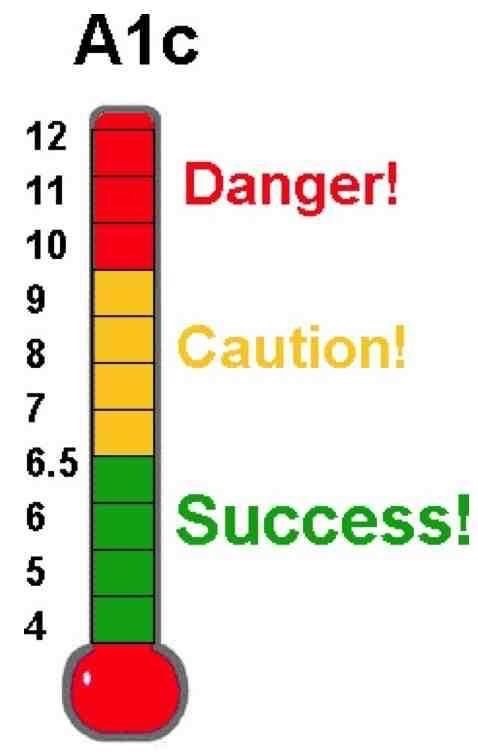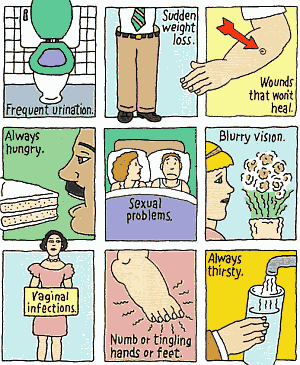
Today at the Age of Grace, Diabetes is in the spotlight for health awareness and prevention! My post is perfect timing, since Saturday, November 14 is World Diabetes Day. Are you in the know regarding your blood sugar glucose level? Are you aware that an uncontrolled blood glucose level can lead to type 2 diabetes?
Nearly 10% of the adult population of the world has diabetes. Ninety percent of these cases are type 2 diabetes (lifestyle and diet related). Another 86 million with pre-diabetes are at risk for type 2 diabetes.

According to the American Diabetes Association, In type 2 diabetes, your body does not use insulin properly. This is call insulin resistance. At first, the pancreas makes extra insulin to make up for it. Over time your pancreas isn’t able to keep up and can’t make enough insulin to keep your blood glucose levels normal. Type 2 is treated with lifestyle changes, oral medications (pills), and insulin.
Second, please note the difference between Type 1 and Type 2 Diabetes. This post focuses on Type 2 Diabetes. Type 2 Diabetes can also be referred to as non insulin-dependent diabetes or adult-onset diabetes.

The best measure of long-term average blood glucose control is a simple laboratory test called the A1C. On-target blood glucose control helps you feel your best or delay complications. Do you know your A1C? Normal A1C levels: 4.0 – 6.5
Know the Risk Factors for developing Type 2 Diabetes:
1. Excess body weight or obesity.
2. Body Shape. If you accumulate fat in the abdomen (apple shaped) compare to accumulating it in your thighs, buttocks and hips (pear shaped), then you’re at a higher risk for developing Type 2 Diabetes.
3. Physical inactivity and sedentary lifestyle.
4. Poor diet.
5. Stress
6. Genetic predisposition (family history)
7. Stop smoking.
8. History of gestational diabetes or delivering a baby weighing > 9 pounds
9. Polycystic ovary syndrome
10. Race/Ethnicity (i.e. African-Americans, Native-Americans, Asian-Americans, Pacific Islanders)
It saddens me when I see wheel chair bound people with leg amputations or others with patches over their eyes. Obviously, I don’t know the details of why these people have lost limbs or patches over their eyes. There are many complications that can arise when diabetes signs/symptoms are not addressed or managed. These include kidney issues, blurry vision or blindness, cardiovascular disease or foot ulcers/amputations.
Complications from Type 2 Diabetes:

Know the Warning Signs of Diabetes Type 2:
Medical Professionals devoted to the care of Diabetes:
Primary Care Physician (PCP): Your family doctor or internist may be the physician who diagnosed your diabetes. Your PCP can coordinate your healthcare team and recommend diabetes specialists.
Endocrinologist: This physician specializes in treating diseases of the endocrine system, such as diabetes and thyroid problems.
Certified diabetes educator (CDE): A specially trained healthcare professional such as a nurse, dietician or pharmacist who can counsel and educate one with diabetes. A diabetes educator helps you set achievable behavioral goals and provides support by encouraging you to talk about your concerns and challenges.
Ophthalmologist: An M.D. who monitors your eye health to look for any damage uncontrolled blood sugar may have done to your vision.
Nurse/Nurse practitioner/Physician Assistant: A nurse, NP or PA administers routine care and may serve as your advocate and educator.
Podiatrist: can check your feet for nerve damage or wounds
Did You Know?
- Smoking increases your risk for diabetes and its complications. It also elevates your blood pressure and reduces the amount of oxygen that gets to your organs.
- Diabetes increases your risk fro complications from flu and pneumonia, which leads to 30,000 deaths a year. Getting an annual flu shot is critical.
- New medications for diabetes along with diet and exercise can achieve control of your diabetes with the fewest side effects.
- Bariatric surgery is changing the face of type 2 diabetes for the overweight and obese. A recent Cleveland Clinic-led STAMPEDE trial found that diabetes was fully controlled in 42% of patients who had gastric bypass surgery.
Be in the know about Type 2 diabetes! Type 2 diabetes is a progressive disease which can be managed to prevent complications or prevented by lifestyle and diet choices. Seven million people are diagnosed with type 2 diabetes each year, don’t be one of them.
Have a fabulous week!




